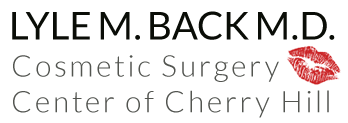The New Jersey Cosmetic Procedure Tax Experience – What Have We Learned From It?
Perhaps you have experienced firsthand the interesting tax the State of New Jersey has placed on cosmetic procedures. New Jersey Plastic Surgeons and their patients know all too well that this 6% tax applies to things like Botox® treatments, liposuction procedures, and face lifts. Were you aware that this tax also applies to things like cosmetic dentistry, teeth whitening and hair removal, and affects doctor’s offices, spas, salons and electrologists?
In September 2004, New Jersey gained the dubious distinction of becoming the first state in the union to enact legislation that placed a 6% tax on all elective cosmetic procedures – the “Cosmetic Procedure Tax”. Assemblyman Joseph Cryan introduced the bill, believing that it would to be a straightforward and simple way to bring some much-needed revenues to the state. Unfortunately, the research and analysis in preparation for implementing the tax proved to be quite a bit off the mark. The actual amount of revenue this tax would represent to the state turned out to be far less than all the original estimates suggested. Moreover, the logistics and administrative issues involved in the implementation of this tax proved to be extremely costly. What was the end result? For every $1.00 of this tax collected, it is estimated that the state had actually lost $3.39 in total revenue!
Recognizing these unintended and untoward economic consequences, Assemblyman Cryan himself began working just two years later (in 2006) to legislate the repeal of the tax. Since then, repeated efforts to have this tax repealed have failed. Why? There are a variety of possible “answers”. One might be that state officials truly believed at one point or another that they had the means by which the administrative costs could be curtailed. But this has not effectively materialized. Another possibility is that state officials expected that there would ultimately be a substantial increase in the tax revenues that would be coming in. However, the initial amounts collected (already much lower than the analysts said – $7 million vs. the $24 million predicted) were then followed by persisting low amounts over the next 5 years. This was not a big surprise as the low 2004 collections came during an economically strong year followed by a weaker, dwindling and recession-like economy which is only just recently beginning to turn around. Nevertheless, the bottom line is that the New Jersey “Cosmetic Procedure Tax” has actually been costing New Jersey millions of dollars each year rather than increasing state revenue – and it is still in force today!
Aside from the clear economic disadvantages, a growing number of medical associations (e.g. the AMA and the American College of Surgeons) have vehemently opposed these types of taxes in New Jersey and in the United States as a whole. The taxing of cosmetic procedures infers that such procedures are merely an “extravagance” or a “luxury” – undermining and demeaning the value of cosmetic procedures and the variety of ways these procedures can improve psychological health on a daily basis. The proper application of the tax itself would often seem to be a matter of interpretation and difficult to determine. So many cosmetic procedures are reconstructive in nature and many reconstructive procedures have a more cosmetic outcome as a major part of the goal. How are these complex situations to be analyzed as properly “taxable”, “not taxable” or more importantly “should not be taxed”? Should a procedure to help a child born with a facial deformity corrected by surgery to look more normal be “taxed”? Should a woman with debilitating back pain alleviated by a breast reduction be “taxed”? Should a patient consider having a procedure on the basis of comfort and confidence with their doctor of choice, or on the basis of where the state line is?
This issue became much bigger and garnered more public attention when the Federal government itself began to consider such a tax. In 2010, after much debate, the Senate rejected a proposal to enact a federal version of a cosmetic procedure tax. The “New Jersey experience” clearly played a role in that decision-making process. Along the way, many other states have also considered and, in the final analysis, also rejected such proposals concluding that the disadvantages would outweigh and dominate over any potential benefits (e.g. Arkansas, Illinois, Tennessee, Texas, Washington and New York). Perhaps New Jersey will ultimately follow the great advice it has served to provide to everyone but itself and repeal the ill-fated “Cosmetic Procedure Tax”.
Dr. Lyle Back is originally from New York City, receiving his medical and surgical training at Rutgers Medical School, Cooper Hospital – University Medical Center, and Ohio State. He is Board Certified in General Surgery (ABS) and Plastic Surgery (ABPS). He is a Fellow of the American College of Surgeons (ACS), the American Academy of Cosmetic Surgery (AACS), and a longstanding member of the premier American Society of Plastic Surgeons (ASPS). He served as a Professor of Plastic Surgery at Temple University and St. Christopher’s Hospital for Children and performed reconstructive surgery with “Operation Smile” in Vietnam. He specializes in the full range of the most modern and state of the art cosmetic surgery procedures for the body and non-surgical cosmetic enhancement techniques available today.
Article Source: http://EzineArticles.com/6214716
